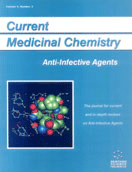Abstract
Antibiotics constitute the dominant treatment of gastrointestinal infections. However, several serious side-effects are associated with extensive use of antibiotics, including spread of bacterial resistance and allergic reactions as well as potential overgrowth of pathogenic bacteria and viruses. On the other hand, there is a growing body of evidence suggesting that certain bacteria, referred to as probiotics, have anti-bacterial properties and may counteract the development of infections. Probiotics are defined as viable non-pathogenic microorganisms, which, upon ingestion exert a positive impact in the host. This review will focus on the antiinfective mechanisms and effects of lactobacilli and suggests that administration of lactobacilli may be an effective approach to prevent and treat a vast spectrum of infections of enteric origin.
Keywords: gastrointestinal tract, infection, lactobacilli, probiotics
 3
3

